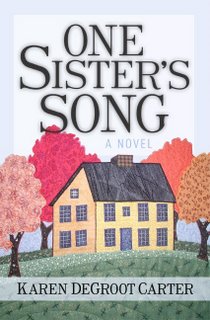Beyond FICKLE: Much Ado about N----?
 This Associated Press article “NYC urges people not to use n-word” discusses a “purely symbolic resolution” passed today. The resolution struck me as an odd, though not entirely surprising, way for a city council to mark the end of Black History Month. While the gesture may be grounded in good intentions, it seems a patronizing attempt to apologize for the poor manners of others. It also seems doomed; any parent who’s ordered an obstinate child NOT to do something—especially a very specific, irritating something—knows aiming such direct attention at a problematic behavior will only make it worse.
This Associated Press article “NYC urges people not to use n-word” discusses a “purely symbolic resolution” passed today. The resolution struck me as an odd, though not entirely surprising, way for a city council to mark the end of Black History Month. While the gesture may be grounded in good intentions, it seems a patronizing attempt to apologize for the poor manners of others. It also seems doomed; any parent who’s ordered an obstinate child NOT to do something—especially a very specific, irritating something—knows aiming such direct attention at a problematic behavior will only make it worse.When I was in fourth grade at a small parish school outside Syracuse, New York, two elderly nuns took turns teaching our class. Sister John Anthony had the afternoon shift, and the day she admonished us—in a hissed whisper, no less—never to utter the “n-word,” she peaked more interest than if she’d suddenly started dancing on her desk. Her warning came out of the blue and just as quickly evaporated with no historical context or explanation of the impact such a word might have on a person of color. Since our class, school, and town were hardly diverse, most of us had never heard that word and never would have uttered it if she hadn’t brought it up. I guarantee, though, that soon after Sister lay down the law about the n-word, more than a few kids went home and gave it a try.
Current arguments regarding the n-word cover a wide range. While proponents of the New York City resolution argue the word is not only derogatory but keeps black people from reaching for a better future, critics argue that reclaiming the slur empowers black people and allows them to overcome its negative connotations. I just think such resolutions are a waste of time and money that would be much better spent on early childhood education, mental health, and job training programs, all of which have endured significant cuts in recent years in cities across the country. I doubt a young man of any color who’s graduating college this spring and is eager to line up job interviews will insist on hanging onto bad habits that might get in his way. Let’s concentrate on getting more kids to that point and forget about slapping the wrists of the celebrities, comedians, and hip-hop artists who get their kicks (and a lot of media play) out of irritating local politicians. Making a fuss about the n-word isn’t going to make it go away. If anything, this resolution has put the n-word into the center of a huge spotlight. I feel like I’m in fourth grade all over again.














